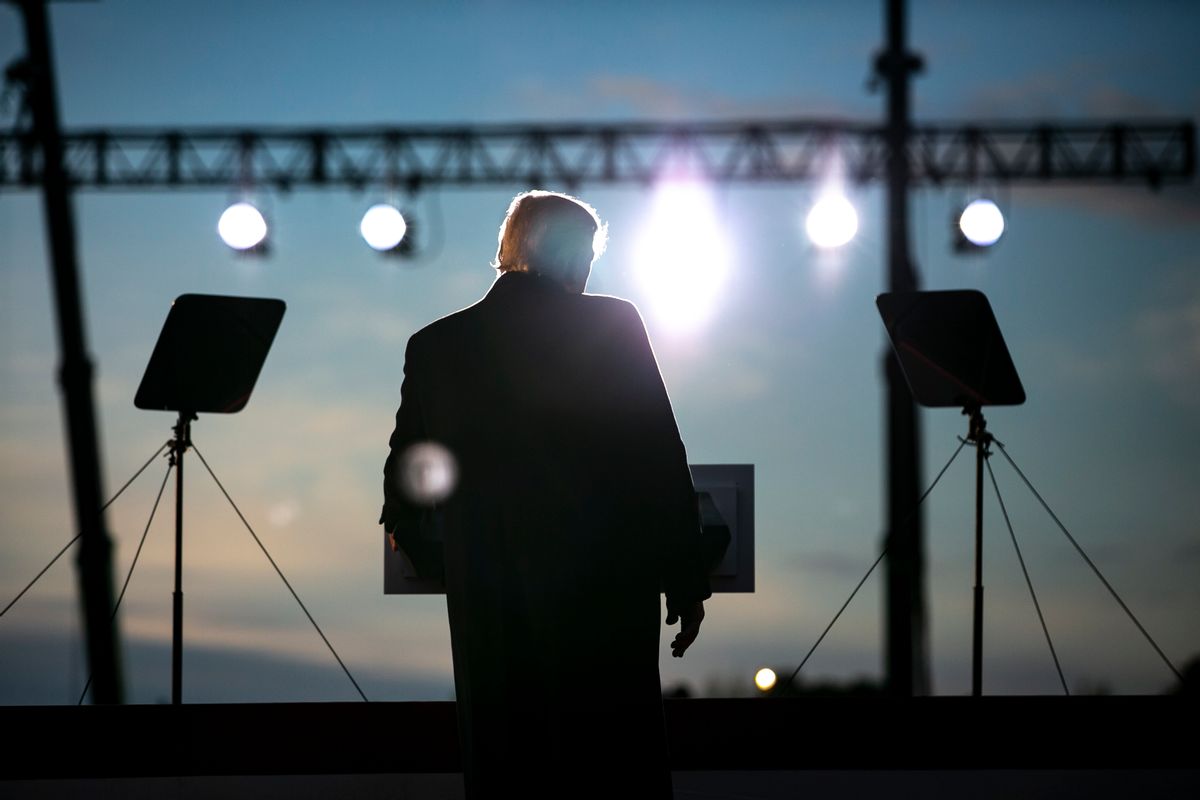One of the two candidates who advanced to the next round of Wisconsin's state Supreme Court race on Tuesday allegedly sought to help former President Donald Trump overturn the 2020 election results in the state through a fake electors scheme.
Two of the four candidates who took part in the primary election will face off in the April 4 general election, having secured the two highest vote totals in Tuesday's race. State circuit court Judge Janet Protasiewicz, a liberal, will compete against Dan Kelly, a former state Supreme Court justice who was briefly appointed to the court until voters opted to replace him in the spring of 2019.
Protasiewicz won the opportunity to advance to the next round by a wide margin, securing 46.4 percent of the nearly 1 million votes cast in the primary race on Tuesday. Kelly, who received 24.2 percent of the vote, split conservative support in the state with another far right candidate, Waukesha County Judge Jennifer Dorow, who got 21.9 percent of the vote.
The final outcome is good news for Protasiewicz going into the spring general election, as she and another liberal candidate, Dane County Judge Everett Mitchell, received a combined total of 53.9 percent of the vote, while conservatives obtained a combined 46.1 percent.
Protasiewicz has been vocal about her progressive views on partisan gerrymandering of political maps and abortion, while Kelly is known to be a right-wing extremist.
When he was first appointed to the court by former Republican Gov. Scott Walker, for example, critics noted that Kelly was a member of the Federalist Society, was vociferously opposed to the U.S. Supreme Court's marriage equality ruling, and had equated affirmative action policies to slavery. Walker appointed Kelly to the post in spite of him having no prior experience as a judge.
In recent years, Kelly has involved himself in Republican politics — including working to help overturn President Joe Biden's win in the state in November 2020.
For the past two years, Kelly has been paid around $120,000 by Republicans for his work on so-called election integrity projects. Included in that sum is a $40,000 payment he received from the Republican National Committee after he announced his candidacy for the state Supreme Court, which is nominally a nonpartisan office.
Kelly was also a central player in the December 2020 discussions on creating a slate of fake electors to interfere with the Electoral College certification process for that year's presidential race — an attempt to overturn Biden's narrow defeat of Trump in Wisconsin.
According to testimony given to the January 6 committee from a former state party chair, Kelly had "extensive conversations" with other party insiders about creating a group of non-sanctioned electors to sway the election in favor of Trump during the certification process in Washington D.C. on January 6, 2021.
The Wisconsin Supreme Court contest will have significant repercussions for the state's residents, and potentially for the entire country.
There is a high likelihood, for example, that the court will hear arguments on the right to abortion. After the federal Supreme Court overturned abortion rights protections that were recognized in Roe v. Wade, Wisconsin reverted to its previous statutes on abortion, including an 1849 law that bans the procedure except in cases where a person's life is at stake.
Protasiewicz has made abortion rights a pillar of her campaign. "I believe in a woman's freedom to make her own decision on abortion," she said in one campaign ad.
The state Supreme Court will also likely examine election laws, including redistricting rules that have allowed Republicans to maintain power in the state legislature through partisan gerrymandering. While the past two gubernatorial and presidential elections have been near-50-50 splits, Republicans have maintained close to two-thirds control of both legislative chambers in the state Capitol for more than a decade. Legislative maps have been drawn up entirely by Republicans since 2011.
Protasiewicz said in a recent Wisconsin Public Radio interview that she believes the maps are rigged. "I don't think you could sell to any rational person that the maps are fair," she said.
If elected, Protasiewicz told voters, her rulings would be nonpartisan and rooted in the law. "I tell you what my values are because I think that Supreme Court candidates should share with the community and the electorate what their values are," she said. "Nonetheless, I will uphold the law (and) follow the Constitution when I make any decisions. Nothing is prejudged."
The state Supreme Court may also rule on how future elections are managed. The court, for example, decided along partisan lines after the 2020 election that ballot drop boxes in the state were illegal, a move that voting rights advocates said was based on unsound reasoning by the conservative bloc.
In the run-up to the 2024 presidential election, it's likely that other election-related litigation will be decided by the state Supreme Court. Because Wisconsin is a swing state, the court's decisions could play a major role in determining the final outcome of the race.



Shares